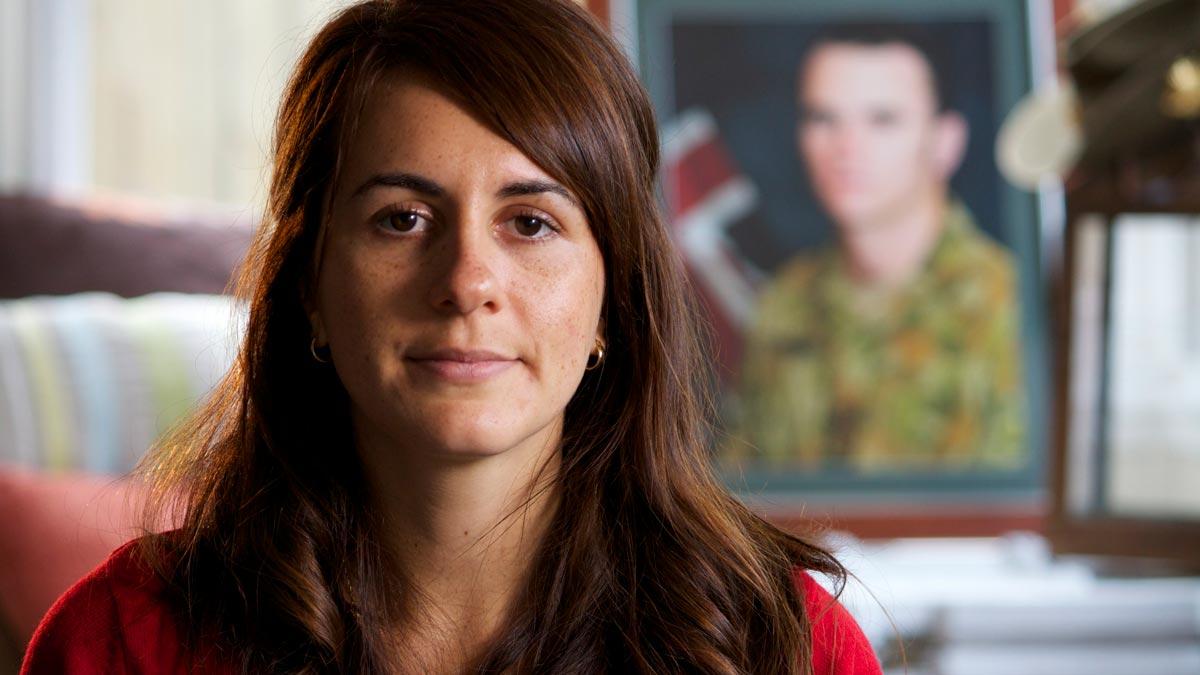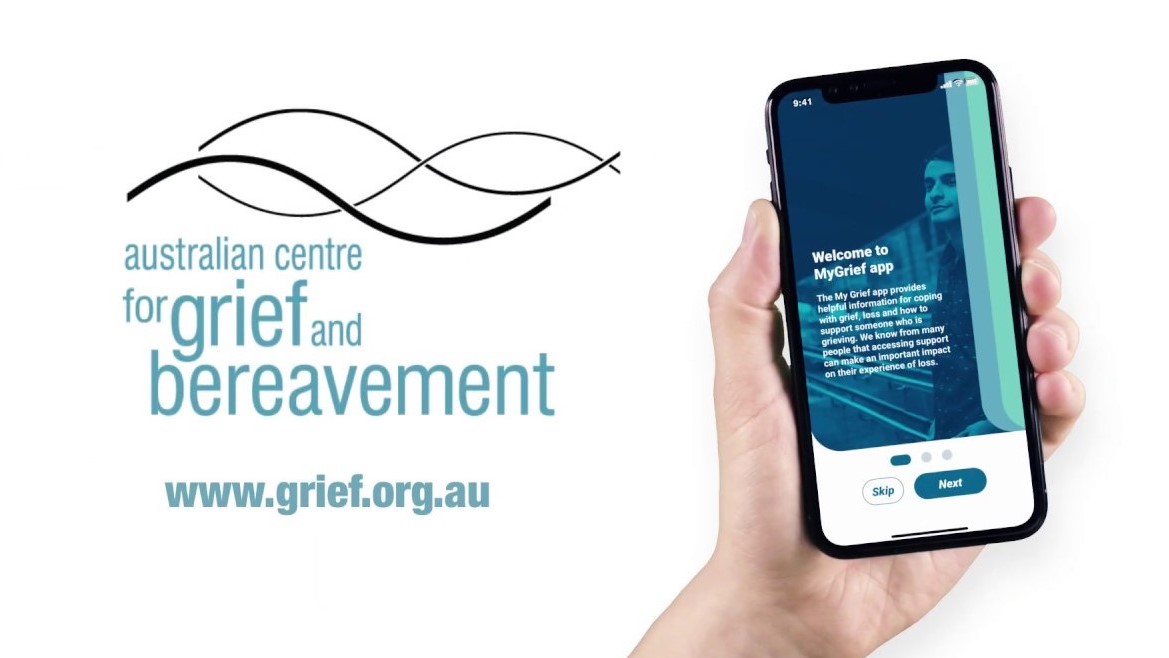Treating complicated grief
- Approximately one in ten bereaved people experience complicated grief, with higher rates amongst those bereaved by disaster or violent death, or parents who lose a child.
- Losing a loved one or friend requires a period of adjustment, during which people grieve for the loss and re-establish their lives without the loved one’s presence. For most people, the intensity of their grief recedes with time as they adjust to life without their loved one.
Key characteristics
For some people, the normal grieving and healing process can become derailed. So much so that they develop a chronic and debilitating condition. The term complicated grief will be used to refer to this condition although it is also sometimes referred to as:
- prolonged grief
- bereavement related disorder
- traumatic bereavement (depending on the manner of death)
For clinicians using DSM5, the diagnosis 'persistent complex bereavement disorder' has been described. With explicit criteria in conditions for further study - Section III that 'Some indications that the normal grieving process has been derailed, and that complicated grief may be present'. These include:
- preoccupation with the deceased or circumstances of the death
- persistent yearning or longing for the deceased
- difficulty making sense of the loss
- misinterpretation of aspects of the loss (e.g. excessive self-blame)
- avoidance of reminders of the loss
- feeling that life is meaningless without the deceased
- prolonged experience of grief, e.g. for more than one year
Complicated grief is associated with more prolonged distress and disability. As well as greater negative health outcomes and suicidality than normal grief. It is important to note that complicated grief is distinct from anxiety and depression. Although there are some common features across these disorders.
Complicated grief reactions have traditionally been diagnosed as
- depression
- PTSD or
- an anxiety disorder
Substantial evidence now suggests that complicated grief is distinct from other disorders. Despite some similarities and frequent comorbidity. For example, veterans suffering any post-bereavement disorder are likely to report ongoing sadness. Those experiencing complicated grief, however, are less likely to report depressive symptoms such as low mood and feelings of hopelessness, or anxiety symptoms such as restlessness or nervousness. Instead, prominent features will include:
- preoccupation (e.g. intense yearning for the deceased, rumination about the death)
- reactive distress (e.g. anger, self-blame, avoidance of reminders)
- identity disruption (e.g. a sense that life is futile or meaningless, detachment from others)
It is important to recognise complicated grief. As interventions only targeting anxiety, depression, or PTSD are not usually effective. Careful assessment of symptoms is therefore required. Post-bereavement anxiety, depression, or PTSD (either independent of, or comorbid with, complicated grief) can be treated using standard approaches for these disorders.
Prevalence
- Approximately 10% of bereaved people experience complicated grief.
- Higher rates exist amongst those bereaved by disaster or violent death, or parents who lose a child (Shear et al., 2011).
Screening and assessment
Veterans presenting with persistent and severe symptoms following the death of a close friend or relative should be assessed for the possible presence of complicated grief. In most cases, a detailed diagnostic interview is the best way to proceed although several scales are also available. For example:
- Texas Revised Inventory of Grief
- Hogan Grief Reaction Checklist
- Grief Evaluation Measure
- Inventory of Complicated Grief
Complicated grief can be a significant risk factor for suicide. As veterans may feel that life is meaningless, or express a wish to die in order to be reunited with the deceased. It is therefore important to ask grieving veterans about suicidal ideation using direct and unambiguous questions such as:
- Are there times when things seem so bad that you think about killing yourself?
- Do you have a plan of how you might do this?
- Do you have access to … (check means and opportunity)?
- Have you ever harmed yourself or tried to kill yourself in the past?
- Do you live alone (or unsupervised)?
- Do you use amphetamines, alcohol, or other substances?
It is also important to consider and address other risk factors such as social isolation and substance abuse.
Psychoeducation and self-management strategies
Most people find grief resolves over time with the support of their family, friends and usual coping strategies with no professional help necessary. The information below on self-management strategies may be useful for veterans who have experienced loss.
Health care providers can offer advice on basic self-management strategies that the veteran can use to assist in recovery from grief (or while undergoing any necessary psychological and/or pharmacological interventions for complicated grief). Encourage the veteran to:
- prioritise spending time and reconnecting with their social supports. e.g. sympathetic family members and friends, or interpersonal community activities
- maintain (or re-establish) their daily routine and current roles (e.g. work, family). This is particularly important for veterans who have a lot of unstructured time. This may include starting an exercise routine (as simple as a daily 20 minute walk) and engaging in planned pleasant events
- reduce substance use. While alcohol and drugs may alleviate distress in the short term, they inhibit recovery
Psychological interventions
Mental health practitioner delivered cognitive behavioural therapy (CBT) should be considered for veterans with complicated grief (Wittouck et al., 2011)
Cognitive behavioural therapy
CBT has some general techniques applicable across a range of disorders. The specific CBT techniques for targeting complicated grief are:
- Cognitive therapy. This assists veterans to
- identify unhelpful thinking patterns relating to their loss and
- revise the way they think about those aspects. This can be particularly useful for veterans who are experiencing guilt-related thoughts and intrusive memories.
- Behavioural techniques. Techniques such as activity scheduling can assist the veteran to re-engage with the world, undertake positive or pleasurable activities, and set goals for the future.
- Exposure therapy. This approach can be particularly useful for those whose loss occurred in traumatic circumstances and experience fear-based intrusive memories. Imaginal exposure involves repeatedly telling the story of the loss. In vivo exposure may involve confronting places or people associated with the loss that the veteran has been avoiding. Where the veteran did not witness the death, and their intrusive image is based on their worst fear of what the death may have involved, it may be beneficial to
- try and clarify the known details, and
- then seek to address or correct any misinformation or assumptions that this image may be based on.
Such clarifications can potentially address the intrusive images without the requirement to engage in imaginal exposure. The intervention can also include having imagined conversations with the deceased, evoking happy memories, and exploring regrets and resentment so that they are able to make goals for the future.
Psychological treatment setting and duration
Complicated grief can be treated in an outpatient setting and does not usually require admission to a psychiatric hospital unit. There is not sufficient evidence to determine a recommended treatment length for complicated grief. However, as whenever using CBT, it is important to establish a clear treatment plan for each time-limited episode of care.
Pharmacological interventions
Veterans with milder forms of complicated grief will usually respond well to psychological interventions alone. Psychological interventions are also the treatment of choice for veterans with more severe symptoms. However, evidence suggests an adjunctive course of newer antidepressants can help veterans tolerate grief-focused CBT.
See also
-

Grief and loss
It can be very painful losing someone or something you care deeply about. Sometimes it will feel like the pain will last forever. -

Suicide bereavement
If someone close to you or someone you know has recently died by suicide, you may be experiencing a range of difficult emotions such as shock, disbelief or even anger. -
 Centre for Grief and Bereavement
Centre for Grief and BereavementThe Australian Centre for Grief and Bereavement provides some useful information on grief for clients, including the MyGrief app. Visit www.grief.org.au.





